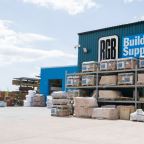
SW firms missing out on “cash mountain” that could help them grow further
South West firms could be missing out on a ‘cash mountain’ that could help them to expand, says Lloyds Bank Commercial Banking after new figures found they were tying up millions of pounds in excess working capital.
The research shows that businesses across the south and the east of England have at least £138.3billion tied up in excess capital, as business growth continues to soar.
But by building up their stock levels ahead of anticipated price hikes – causing the level of cash trapped in working capital to increase – South West firms could be leaving themselves exposed, especially if economic conditions continue to deteriorate.
Working capital is the amount of money that a company needs to cover the day-to-day costs of running the business. The more money tied up in working capital, the less available for investment or reducing debt.
By tying up more cash in working capital, particularly stock, South West businesses could be missing out on a “cash mountain” and could be left exposed if economic conditions deteriorate and they are left holding too much stock.
The Lloyds Bank Working Capital Index is a new six-monthly index launched today that uses the Lloyds Bank Regional Purchasing Managers’ Index (PMI) data to calculate the pressure businesses are under to either increase or decrease working capital.
A reading of more than 100 indicates pressure to devote more cash to working capital while a reading of less than 100 indicates pressure to prioritise liquidity.
The current reading of 107.1 indicates that South West firms are putting more cash into their working capital, even though economic indicators warn of possible storms to come.
Nathanael Bonser-Ward, Global Transaction Banking at Lloyds Bank, said: “Working capital is the lifeblood of any business, and our research shows that British businesses have huge amounts of money tied up in it. This cash mountain suggests that companies are either feeling more positive about the future or that they are reducing their focus on this critical area of business performance.
“This could be a good sign: businesses can afford to stock up and tie up increasing levels of cash in working capital when they are performing well and focussed on growing their business. But, having those funds locked away at times of uncertainty, or if the economy falters, could spell danger.
“By understanding the hurdles they face and how their working capital levels compare to industry norms, British businesses can use this insight to unlock the cash trapped within their business, become more efficient and realise their full potential.”
Chris Williamson, Chief Business Economist at IHS Markit added: “It is worrying that firms are under such high pressure to increase working capital at a time when other economic indicators suggest the economy is starting to slow.
“Looking back over the past 17 years, this index shows that when times get tough, companies normally look to decrease working capital to free up cash. What we’re seeing now is evidence of the corporate sector starting to struggle with customer payment delays and rising costs, while also building a war chest to get through a period of potential uncertainty and volatile business conditions.”
Nathanael Bonser-Ward added: “Our teams of dedicated working capital specialists can help firms of all sizes to explore their working capital cycle and unlock the cash within their business so that they can invest in growth.
“With continued pressure on cash cycles, a build-up of excess working capital and mixed economic signals for 2017, now is the time for British companies to renew focus on working capital.”
For more information about the Lloyds Bank Working Capital Index visit www.lloydsbank.com/workingcapital













